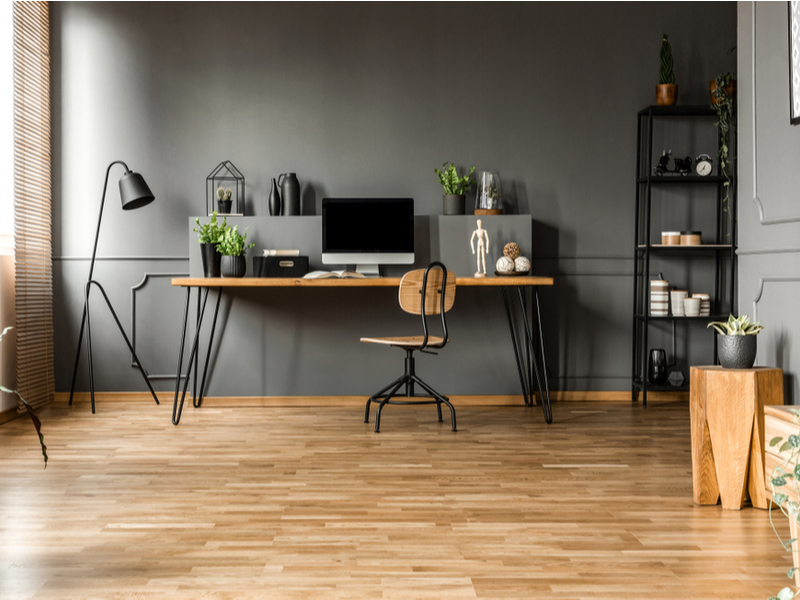How to Avoid Work from Home Burnout

With the ongoing pandemic that has affected countless lives, creating a new normal seems terrifying. The transition from a formal corporate office to the comforts of your own home could possibly lead to work from home burnout.
Many industries have done what they could for workers and have made a shift to remote work or working from home settings. This is to help the effort in curbing the rising cases of the 2019 Novel Coronavirus or COVID-19.
With these recent changes, the lines between work and personal lives can become blurry. The best course of action? Set up prevention measures that may be able to help delineate your work life from your personal one.
How Do You Not Burn Out from Working at Home?
Just like with every routine no matter the subject, there is no universal measure that works for everyone. However, knowing the basics and possible root causes of work from home burnout may help manage and prevent it in the future.

There are many causes of burnout. Even without the added stress of setting up shop at your own house, burnout can happen anywhere. Whether you are working part-time or working all the time, the nature of the job will most definitely catch up with you if you don’t watch out for common signs of burnout.
Signs will vary per person, of course, as not everyone has the same lifestyle pace. However, the most common ones seem to be anxiety symptoms, fatigue, a significant decrease in energy. Sometimes even physiological symptoms manifest like migraines, digestive problems, and muscle and joint pains, especially along the shoulders and back.
Additionally, working parents may be more susceptible to work from home burnout. They have to take care of their children almost 24 hours a day, for seven days a week, since most schools are also closed due to the pandemic.
There is no magical pill to all this, no matter the wishful thinking we put into placebo supplements. However, there are some countermeasures that may help manage burnout, including high-quality vitamins that may help boost your overall energy and mood.
Set Boundaries
For corporate and government employees, meetings are a common thing. They are part of your regular routine in the office. Back then, it would only take an hour or two and sometimes there would even be food present. Now, working remotely, all you’re probably seeing is screen after screen of endless meetings and video calls.
Try to set a goal for the day or week and stick to it. During meetings, prepare notebooks and writing materials to help with mental focus, and take note of what’s going on. When it’s time for a break, try to go outside and take a quick walk or run with your pet.
Spending time with nearby family can also do wonders. If there’s work left to be done but it can be accomplished tomorrow with no added hassle, take the extra time to rest your eyes and mind. Set realistic boundaries for yourself to help separate the “work you” and the “real you.”
Try CBD Oil
Despite its infamy, there are actually a lot of misconceptions surrounding cannabis and cannabis-derived products. For example, cannabidiol (CBD) is a cannabinoid found mostly in hemp plants. Its popular usage is in helping people relax and soothing fraying nerves brought about by stress or anxiety. And yes, it is also popular in helping treat work from home burnout.
CBD oil has become popular in recent years because of its supposed health benefits. Research has proposed CBD’s potential to treat anxiety disorders.

Another research showed that this compound may greatly help with anxiety and sleeping problems. It could also help with backaches and other muscle soreness from sitting all day. It has anti-inflammatory properties as well to help relieve swelling or old injuries that are acting up due to the lack of physical movement.
Scientists believe that this is thanks to the molecular structure of this cannabinoid. It is similar to common over-the-counter NSAIDs used for pain relief. With CBD though, there are no drowsy side effects. The effect is quite the opposite as taking the best CBD products may help increase energy levels and the production of serotonin.
A typical workday from before might usually start with you cooking breakfast and eating at the kitchen table in a hurry or simply picking up coffee from the nearest bakery. Now, you might want to start your day at a slower pace.
Eating breakfast and making sure to take supplements and vitamins to help sustain you throughout the day may do you wonders.
Have a Separate Work Area
Homelife can be pretty comfortable in itself. When working from home, it can be easy to work from the comfort of your warm couch or bed. However, this may actually decrease your productivity.
If you work while supine-lying, you might tend to feel drowsy or too relaxed after a while. In the same way, being too uncomfortable will also lessen your drive to work and add up to frustration and stress.

You don’t need to completely transform an extra room into a neat home office. A quiet little corner in your bedroom or by the living room with lots of windows and open space could be your best option. A small table or desk is all you need.
Be sure to get in some natural light and fresh air if you are able. This will not only help you relax some more but also help you feel less cooped up and constricted in that tiny work corner.
If there are plenty of you inside the house and you find this distracting, you may want to form a Do Not Disturb schedule with your housemates when you’re in your work desk.
Learn to Decompress
Some people are so attuned to their bodies that they can tell when they start experiencing work from home burnout. It’s okay if you’re not one of these people, however, it is good if you see the signs early. Then, you can start working on how to prevent or manage it.
Do you have a favorite hobby? Maybe cooking or tending to a garden used to be a weekend pastime because that was the only time you were home for a period of time. With a work from home setting, you can now do all these things in your spare time in the mornings or evenings.
Your time for morning commute could be allotted to doing yoga or pilates before office hours start. Whatever hobby or healthy coping mechanism you have, right now is the best time to nurture them. No career expert became that way without a little bit of fun on the side!
Take Breaks
Time management is always important, no matter the task. However, work from home burnout is especially bad if you always make yourself available non-stop. Learn the art of saying no to your bosses when asked to finish a week’s worth of tasks in one working day.
More importantly, don’t be afraid of taking breaks. Even a 15-minute pause from staring at your screen will do wonders for your physiological and mental health.
Some eye experts recommend the 20-20-20 rule when working with screens. For every 20 minutes, look at something 20 feet away for 20 seconds.
Create a Schedule that Works
In the same way that office hours try to define clear times for lunch breaks and work breaks, setting up a schedule for yourself may help lessen the stress. Some tasks may take longer than others. Don’t stress too much if your schedule isn’t followed to a T.

A word of caution as well, in case you get too used to oversleeping or staying up late because your work desk is right beside your bed anyway. Sticking to a routine will increase your productivity. Some even try to stick to their work routine from before — breakfast, shower, get dressed — in order to get into proper work mode and mood.
You don’t have to do this, of course, you can just stick with what works for you. Just be sure to set limits that work both for yourself and for your team and workmates. Inform your colleagues about your working hours and hours you’ll be offline.
Ask for their schedule too so you know to respect each other’s time and boundaries. This will not only help prevent work from home burnout but possibly boost team morale as well.
Is CBD Legal? Hemp-derived CBD products (with less than 0.3 percent THC) are legal on the federal level. Moreover, these statements have not been evaluated by the Food and Drug Administration. This product is not intended to diagnose, treat, cure, or prevent any disease and products that have not been FDA approved. Likewise, you must be at least 21 years old to purchase these products. Talk to your physician or medical doctor for additional information.



